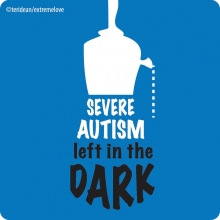Help me understand why people would turn to diet pills, etc. after WLS
This is not meant as a judgment. I just don't understand... at all. I am hoping that someone can help me understand. If these drugs actually worked, we would all have taken them and wouldn't have needed WLS. So if they didn't work before surgery, why would they work after WLS? (They do not seem to be helping the two people I know... at least not very much (or, maybe they ARE helping, and both of them would be gaining more weight without them)... and I did not ask the client about her friend.)
Even after the caloric malabsorption is gone (and even if our metabolism is lower than it was before surgery), we still have the restriction (IF we choose to use it) and we still have the knowledge of how to eat to maintain our weight (again, IF we choose to use it). So why turn to drugs that didn't work before instead of using what we have?
Even though I am personally not a fan of people taking stimulants, I could understand going back to taking diet pills if they worked, but they DON'T... so I just don't understand.

Lora
14 years out; 190 pounds lost, 165 pound loss maintained
You don't drown by falling in the water. You drown by staying there.
![]()
It's likely those patients who feel "their surgery failed", so they are trying anything to help their wt. Failed surgeries are a misnomer--it's the patient that "failed" --they don't think about maintenance at all. There are still some people who beleive that RNY is the "magic bullet", but it's really only a tool, and the final results are up to the patient's behavior. DAVE
Dave Chambers, 6'3" tall, 365 before RNY, 185 low, 200 currently. My profile page: product reviews, tips for your journey, hi protein snacks, hi potency delicious green tea, and personal web site.

I have never heard the other person blame her re-gain on the surgery, though.
Lora
14 years out; 190 pounds lost, 165 pound loss maintained
You don't drown by falling in the water. You drown by staying there.
![]()
Drugs
5 day pouch tests over and over again
Very low calorie diets
Shakes replacing up to 2 meals a day when you are years out ...
Our metabolism is a fragile thing, especially after WLS, and I cannot understand, for the life of me, why anyone who has undergone having their digestive system re-routed, would jeopardise their metabolism rather than do what is really commmon sense - what we are taught to do once we are onto full food.
High protein, lowish carb (not NO carb) really is our diet for life - not a year or two - and it is THIS fact that is the most important lesson we can learn. We don't need to diet, we need to acknowledge our lifestyle and stick to it - this is what *most* of the vets on here do - maybe it's why we are successful so far out, when so many others aren't?????????
Proud Feminist, Atheist, LGBT friend, and Democratic Socialist

It seems that a lot of surgeons don't tell people that their metabolism may be even lower after surgery than it was before, and maybe that contributes to the struggle in maintenance. If people don't understand that their bodies may be MORE done to gaining weight after surgery, they may very well be frustrated at having to eat less than they expected in maintenance, especially if they were eating more than that while they still had some of the malabsorption going on. (As strange as it sounds, I think that it actually worked to my advantage to have lost so slowly after 9 months out. Since it took me 20 months to get to goal, I never really had a period where I was takin advantage of the caloric malabsorption and didn't have to decrease what I was eating once it was completely gone. It still eat about the same as I did at a year out... other than my daily treat, of course.)
I confess that when I had the surgery, I expected that the surgery would do more than it does to help maintain the weight loss. I knew that the caloric malabsorption would fade (but I did not know how MUCH... Just like I knew that not everyone dumped but did not know how low the number was). Fortunately, there were some vets on here at that time (when i was a newbie) who talked about how this surgery was not a "get out of obesity free" pass. One of the reasons that I now stick around to pay it forward.
Lora
14 years out; 190 pounds lost, 165 pound loss maintained
You don't drown by falling in the water. You drown by staying there.
![]()
I also understand lack of willpower. BTDT, too. But the desire to eat when not hungry or to overeat comes from something deeper. So maybe the answer to my question is as straightforward as people not having dealt with the psychological/emotional issues at the heart of the overeating... And then feeling just as desperate about their weight as before surgery. I know that I spent as much time in my counseling sessions the year before my surgery and the two years after it talking about the overeating issues as I did the assault/PTSD issues.
It just makes me so sad (and sometimes a little frustrated, deending on the person and situation) to see people going back to these things that just don't work after they have already gone to the extreme step of having their digestive system altered.
Lora
14 years out; 190 pounds lost, 165 pound loss maintained
You don't drown by falling in the water. You drown by staying there.
![]()











